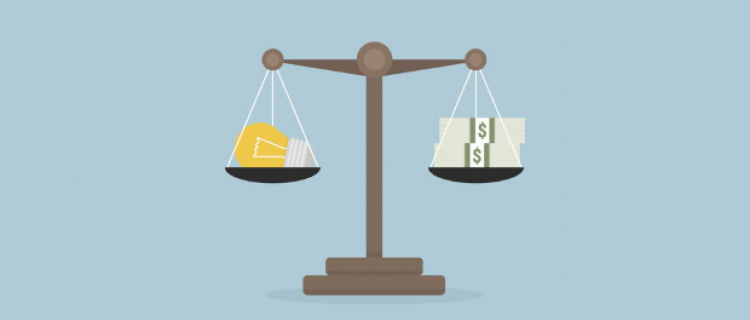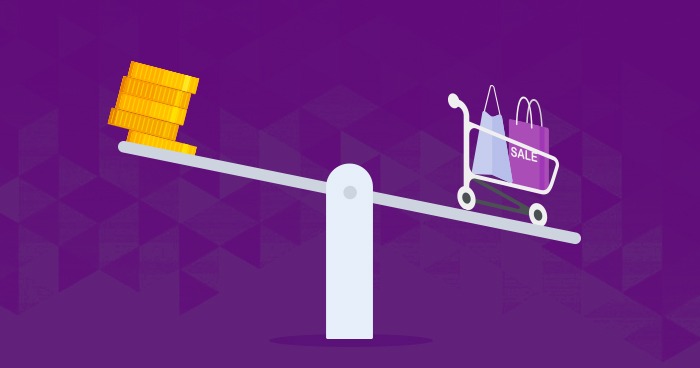Price Comparison prices is a fundamental skill that savvy consumers use to stretch their budgets and make informed purchasing decisions. With countless retailers and online platforms offering similar products at varying prices, knowing how to effectively compare prices can lead to significant savings. In this article, we’ll explore practical strategies and tools for mastering the art of price comparison.

Page Contents
- 0.1 1. Research Multiple Retailers:
- 0.2 2. Utilize Price Comparison Websites:
- 0.3 3. Consider Shipping and Additional Costs:
- 0.4 4. Look for Discounts and Promotions:
- 0.5 5. Compare Product Features and Specifications:
- 0.6 6. Negotiate Price Match Guarantees:
- 0.7 7. Be Cautious of Counterfeit or Unauthorized Sellers:
- 1 Exploring the Pros and Cons of Price Comparison: Making Informed Shopping Decisions
- 2 Author
1. Research Multiple Retailers:
- Online Retailers: Start by browsing multiple online retailers to compare prices for the same product. Websites like Amazon, eBay, and Walmart often offer competitive prices and a wide selection of products.
- Brick-and-Mortar Stores: Don’t overlook brick-and-mortar stores in your area, as they may have exclusive deals or promotions not available online. Visit stores or check their websites for pricing information.
2. Utilize Price Comparison Websites:
- Price Comparison Websites: Take advantage of price comparison websites and apps that aggregate prices from multiple retailers for easy comparison. Examples include Google Shopping, PriceGrabber, and Shopzilla. Simply enter the product name or barcode to view prices from various sellers.
3. Consider Shipping and Additional Costs:
- Shipping Fees: When comparing online prices, factor in shipping costs, as they can significantly impact the total purchase price. Some retailers offer free shipping, while others may charge based on order size or delivery speed.
- Additional Costs: Be mindful of additional costs such as taxes, handling fees, and surcharges, which may vary depending on the retailer or location. These costs can affect the overall value of the purchase.
4. Look for Discounts and Promotions:
- Coupons and Promo Codes: Search for coupons and promo codes that offer discounts on your desired product. Many retailers provide promo codes for first-time customers, holiday sales, or special events.
- Seasonal Sales: Take advantage of seasonal sales and clearance events to score deals on products. Retailers often offer significant discounts during holidays, back-to-school season, and end-of-season clearance sales.

5. Compare Product Features and Specifications:
- Product Features: When comparing prices, consider the features, specifications, and quality of the product. A lower-priced item may lack certain features or be of inferior quality compared to a higher-priced alternative.
- Value for Money: Evaluate the overall value proposition of the product, considering factors such as durability, performance, warranty, and customer reviews. Opting for a slightly higher-priced product with better quality and features may offer better value in the long run.
6. Negotiate Price Match Guarantees:
Price Match Policies: Some retailers offer price match guarantees, where they will match or beat a competitor’s lower price for the same product. If you find a lower price elsewhere, inquire with the retailer about their price match policy to secure the best deal.
Authorized Retailers: Purchase products from authorized retailers or trusted sources to avoid counterfeit or unauthorized sellers. While unauthorized sellers may offer lower prices, they may also sell counterfeit or inferior-quality products that do not meet safety or quality standards.
By employing these strategies and resources, consumers can effectively compare prices and make informed purchasing decisions. Whether shopping online or in-store, conducting thorough research, considering additional costs, and evaluating product features are essential steps in finding the best deals and maximizing savings. With a discerning eye and a willingness to explore different options, consumers can confidently navigate the marketplace and secure the best prices on their desired products.
Exploring the Pros and Cons of Price Comparison: Making Informed Shopping Decisions
In today’s dynamic marketplace, consumers have access to a plethora of options when it comes to purchasing products and services. Price comparison tools and strategies have become indispensable for many shoppers seeking the best deals and value for their money. However, while comparing prices offers several advantages, it also presents gengtoto certain challenges and limitations. In this article, we’ll delve into the pros and cons of price comparison to help consumers make informed shopping decisions.

Advantages of Comparing Prices:
- Cost Savings: One of the primary benefits of price comparison is the potential for cost savings. By comparing prices from multiple retailers or sellers, consumers can identify the most competitive offers and secure better deals on their purchases. This enables them to stretch their budgets and get more value for their money.
- Access to Deals and Discounts: Price comparison tools and websites often highlight special promotions, discounts, and coupon codes offered by retailers. By leveraging these deals, consumers can take advantage of limited-time offers and exclusive discounts that may not be readily apparent when shopping through individual retailers.
- Transparency and Empowerment: Price comparison fosters transparency in the marketplace by allowing consumers to easily compare prices and offerings across different platforms. This empowers consumers to make informed decisions based on factors such as price, product features, reviews, and seller reputation, rather than relying solely on brand loyalty or marketing tactics.
- Convenience and Efficiency: With the rise of online shopping and mobile apps, comparing prices has never been easier or more convenient. Consumers can quickly access price comparison tools and platforms from their smartphones or computers, enabling them to research products, compare prices, and make purchases with minimal effort and time investment.
Disadvantages of Comparing Prices:
- Overemphasis on Price: While price comparison is important, it should not be the sole determining factor in purchasing decisions. Focusing solely on price may lead consumers to overlook other important considerations such as product quality, reliability, warranty, and customer service. Opting for the lowest-priced option without considering these factors may result in dissatisfaction or disappointment with the product or shopping experience.
- Time and Effort: Price comparison can be time-consuming and labor-intensive, especially when dealing with a large number of products or retailers. Researching prices, navigating different websites or apps, and evaluating competing offers require significant time and effort on the part of the consumer, which may not always be feasible or practical.
- Inaccuracy and Inconsistency: Price comparison tools and websites may not always provide accurate or up-to-date information due to factors such as inventory fluctuations, pricing errors, or outdated listings. As a result, consumers may encounter discrepancies between the prices displayed online and the actual prices offered by retailers, leading to confusion or frustration.
- Potential for Information Overload: The abundance of options and information available through price comparison tools and websites can overwhelm consumers and lead to decision paralysis. Faced with a multitude of choices, consumers may struggle to evaluate their options effectively and ultimately delay or forego making a purchase altogether.
Conclusion:
In conclusion, while price comparison offers numerous benefits such as cost savings, access to deals, transparency, and convenience, it also has its drawbacks and limitations. To make the most of price comparison, consumers should strike a balance between price and other factors such as product quality, reliability, and overall value. By approaching price comparison with a critical mindset and considering the broader context of their purchasing decisions, consumers can navigate the marketplace more effectively and make informed choices that align with their needs and preferences.
Read More Article About “Life Energized: Embark on Absolute Adventures for Unforgettable Experiences“










